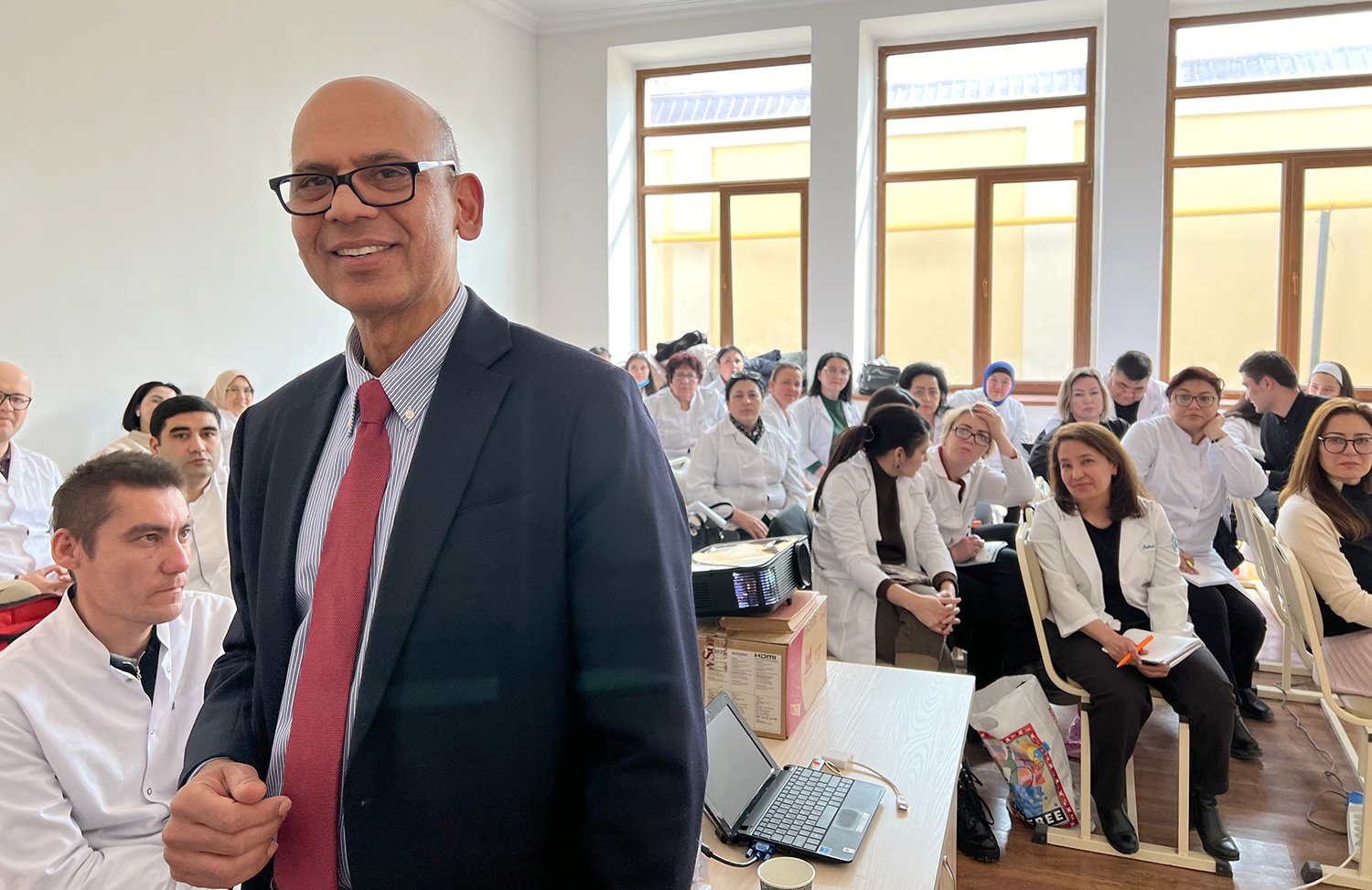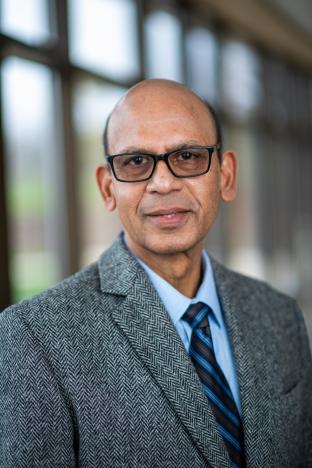original article on UMMS Global Reach website

Mohammad Ghaziuddin, M.D., spent about six weeks with collaborators in Tashkent, the country’s capital, this February and March, exploring opportunities to expand local capacity to treat children and adolescents with neurodevelopmental disorders like Autism.
His visit was made possible by Fulbright Specialist grant. Unlike other Fulbright awards, in which individuals specify a collaborative project in their application, Specialists put forth their qualifications and are subsequently matched to a host institution.
“It is an honor to be selected. The Tashkent Pediatric Medical Institute, where I was stationed, has a budding child psychiatry program,” Ghaziuddin said. “My hosts are very keen to learn about how we approach child psychiatry in the United States.”
Ghaziuddin was the first American child psychiatry expert to visit Tashkent Pediatric Medical Institute for an extended period. He was on Fulbright’s roster of Specialists for a little more than year before being matched with a project in December. Outside of a short-term visit last spring, Ghaziuddin had not spent time in Uzbekistan. He has done extensive capacity building work in the Middle East and parts of Africa.
“Visiting Central Asia was a novel experience for me. This is part of the incentive and value of the Fulbright, which places a high value on cultural as well as academic exchange,” Ghaziuddin said.
While the experience was primarily focused on Tashkent, he did have the opportunity to visit other institutions and meet with providers elsewhere in the country, gaining insights about the existing needs and services, including the role that the government plays as well as the role of extended family members in the culture.
“A typical Uzbek family is a joint family, with the extended family playing a major role in the life of the children,” Ghaziuddin said. “Grandparents are often involved as helpers and co-therapists.”
Ghaziuddin plans to stay in touch with his new colleagues in Tashkent, and while the six weeks went by quickly, the experience will have a lasting impact.
“I hope to maintain the contacts I have established,” he said. “In the meantime, my brief exposure to Uzbekistan has again underscored to me the importance of culture in the practice of psychiatry. I believe the experience will improve my skills in teaching, and in providing care to our population here at home.”




